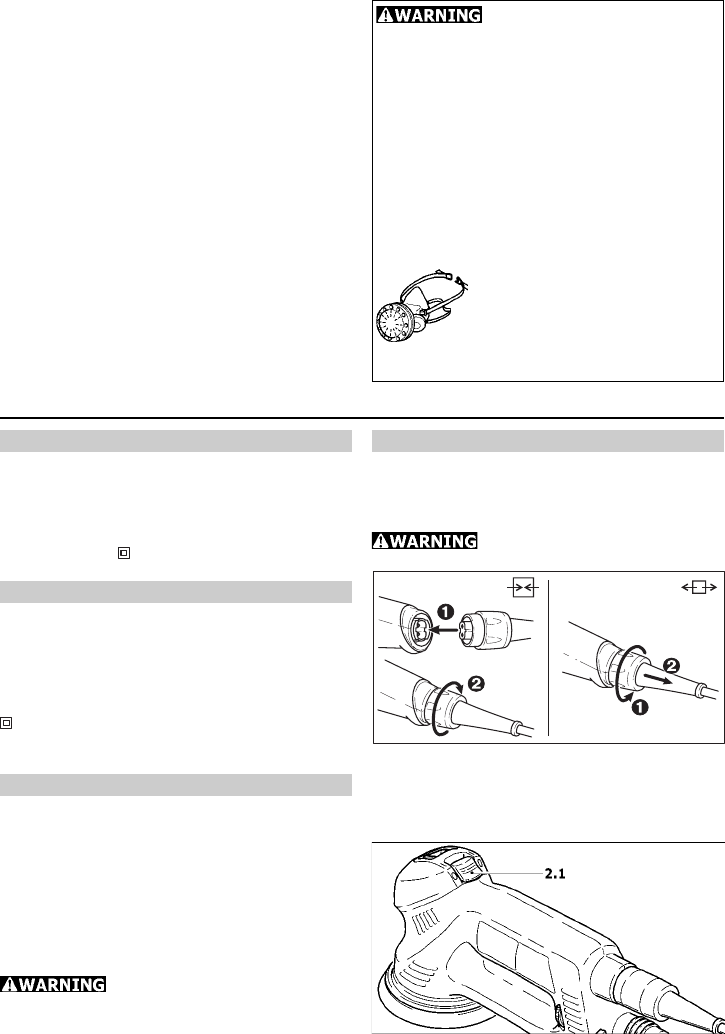
3
21 Check for misalignment or binding of
moving parts, breakage of parts, and any
other condition that may affect the tool's
operation. If damaged, have the tool
serviced before using it. Many accidents are
caused by poorly maintained tools.
22 Use only accessories that are
recommended by the manufacturer for
your model. Accessories that may be suitable
for one tool may become hazardous when used
on another tool.
Service
23 Tool service must be performed only by
qualified repair personnel. Service or
maintenance performed by unqualified
personnel can result in a risk of injury.
24 When servicing a tool, use only identical
replacement parts. Follow instructions in
the Maintenance section of this manual. Use
of unauthorized parts or failure to follow
Maintenance instructions may create a risk of
electric shock or injury.
Symbols
V Volts
A Amperes
Hz Hertz
W Watt
~ Alternating current
n
0
No load speed
Class II Construction
rpm Revolutions per minute
Ø Diameter
Intended use
The sanders are designed for sanding and
polishing wood, plastic, metal, stone, composite
materials, paint/varnish, filler and similar
materials.
Do not use with materials containing asbestos.
The tools must not be used when wet or damp,
or operated in a damp environment, for
electrical safety reasons. Use this sander only
for dry sanding.
The user bears sole responsibility
for any damage or accidents resulting from
incorrect use.
Technical data
Wattage 500 W
No load speed 3000 - 6000 rpm
Sanding stroke 3.6 mm (0.14 in.)
Sanding base dia. 125 mm (4.9 in.)
Weight 1.9 kg (4.2 lbs.)
Safety level
UL 745, CSA C22.2 No. 745
Electrical connection and operation
The mains voltage must correspond to the
voltage on the rating plate!
See the following figure for connection and dis-
connection of the power cord.
Always switch the tool off before
connecting or disconnecting the power cord!
To switch on the tool, press the switch (2.1)
downwards and forwards until it locks into
place. To switch off, press the switch downwards
- this releases the switch lock and it goes into
the OFF position.
Various dust created by power
sanding, sawing, grinding, drilling and other
construction activities contains chemicals
known (to the State of California) to cause
cancer, birth defects or other reproductive
harm. Some examples of these chemicals are:
•Lead from lead-based paints,
•Crystalline silica from bricks and cement and
other masonry products,
•Arsenic and chromium from chemically-
treated lumber.
The risk from these exposures varies,
depending on how often you do this type of
work.
To reduce your exposure to these
chemicals work in a well
ventilated area and use approved
safety equipment, such as dust
masks that are specially designed
to filter out microscopic particles.


















